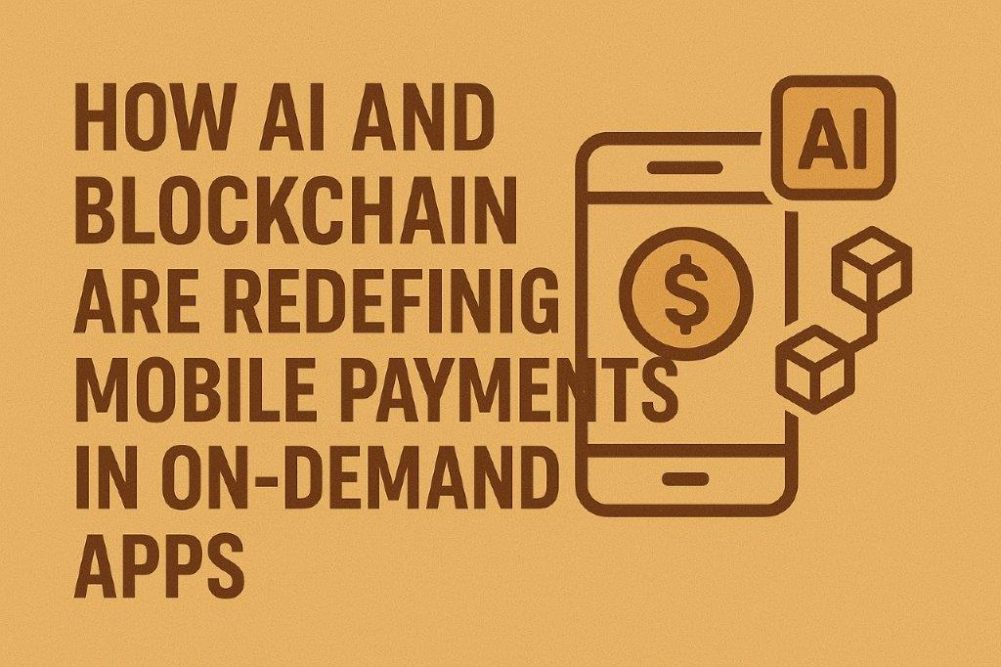Introduction
There is an increasing rise of on-demand apps driven by applications such as Uber, DoorDash, and similar other freelance platforms. These apps have fundamentally changed how services are delivered and consumed. Mobile payment system is an important part of these systems which provide instant, seamless, and absolutely secure transactions. However, traditional payment infrastructure is unable to keep pace with the high-volume and hyper-speed nature of these platforms which in turn leads to concerns of fraud and high transaction costs. The use of AI and Blockchain creates a powerful solution that is actively redefining the architecture of mobile payments. The growth of the mobile payment is also boosting the payment security market. Moreover, according to Consegic Business Intelligence, Payment Security Market Size is estimated to reach over USD 85.50 Billion by 2032 from a value of USD 26.84 Billion in 2024 and is projected to grow by USD 30.82 Billion in 2025, growing at a CAGR of 15.6% from 2025 to 2032. Here in this article we will analyze how AI and blockchain technologies are shaping the mobile payments in on-demand apps such as food delivery apps, ride sharing apps and others.
Role of AI: Intelligence and Speed
- Real-Time Fraud Detection and Risk Management
Conventional payment security relies on rule-based systems which are slow and produce too many false positives. AI-based system uses Machine Learning algorithms to analyze in real-time the large set of transaction data, user behavior, and geographic patterns. AI can spot irregularities as well as predict dubious activities by analyzing the data with impressive precision. In an on-demand app, transactions happen instantly and from diverse locations, which makes it important for AI to flag a fraudulent payment. This significantly reduces the financial risk for users as well as platform.
- Hyper-Personalization and Automation
AI is changing the user experience from a simple transaction into a personalized service. This is done by evaluating the purchase history and understanding spending habits as well as peak usage times. Based on understanding the consumer, AI offers tailored financial recommendations, manages dynamic pricing for various services, and automates the payment. For contractors or freelancers in the on-demand space, the technology streamlines their payment and financial management. Further, AI-powered chatbots and voice assistants are accelerating the point of sale process and provide instant customer support.
Role of Blockchain: Trust and Transparency
- Enhanced Security and Immutability
The distributed ledger of Blockchain logs every single transaction across a network of computers. The architecture is secured by cryptographic processes which make the data virtually permanent and tamper-proof. Further, when a payment is documented, it cannot be modified or deleted which in turn creates an unchangeable audit trail. Moreover, on-demand apps have frequented financial transactions and are often involved in cross-border settlements. This in turn requires robust security which is utmost to retaining user trust.
- Instant Payouts via Smart Contracts
Smart Contracts is one of the major advancements for the gig economy. These self-executing contracts which are encoded on the blockchain spontaneously execute payment when pre-specified clauses are met. This feature eliminates the requirement of the intermediaries in turn drastically reducing the settlement times from days to second or minutes. It also eliminates the associated transaction fees, which is a key advantage for platform as well as the worker.
Conclusion
Mobile payment systems are moving away from their reliance on slow as well as centralized systems to a distributed and intelligent system. There is an increasing trend of integration of AI which offers speed, personalization, and predictive security. Also, the integration of blockchain technology offers reliability, transparency, and automated execution. Further, as these technologies mature, they promise a world where mobile transactions are continuous, immediate, highly stable, and secure, in turn paving the way for hyper-efficient digital economy. Thus, redefined payment landscape, driven by convergence of AI and blockchain, is expected to be the engine for the next wave of innovation.
